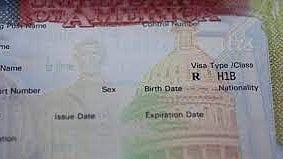World
New H-1B visa fee rules will not affect existing visas or renewals, clarifies US
New ‘guidance’ released by White House however warns of additional reforms under consideration which will be announced in the coming months

The White House on Sunday, 21 September, reassured foreign workers and employers that President Donald Trump’s new $100,000 H-1B fee applies only to fresh petitions, not to existing visas, renewals or travel rights.
In a ‘guidance’ released late Sunday, the White House emphasised that the proclamation signed on September 19 “does not apply to any previously issued H-1B visas, or any petitions submitted prior to 12:01 a.m. eastern daylight time on 21 September 2025.”
It also “does not change any payments or fees required to be submitted in connection with any H-1B renewals” and “does not prevent any holder of a current H-1B visa from travelling in and out of the United States”.
The proclamation, titled “Restriction on Entry of Certain Non-immigrant Workers,” instead requires a $100,000 payment on all new H-1B petitions filed after the deadline, including those for the 2026 lottery.
Published: undefined
The Department of Homeland Security and the state department have been instructed to “take all necessary and appropriate action to implement this Proclamation”.
US government agencies have already moved to align procedures and citizenship and immigration services have issued a memo detailing how the fee will be collected.
While stressing continuity for current visa holders, the White House framed the fee as the first step in a broader overhaul. The labour department will initiate rulemaking to raise prevailing wage levels “to upskill the H-1B programme and ensure that it is used to hire only the best of the best temporary foreign workers.”
DHS is separately tasked with adjusting the lottery to prioritize “high-skilled, high-paid aliens”.
“Additional reforms are also under consideration and will be announced in the coming months,” the proclamation said.
The H-1B visa, which admits 85,000 foreign workers annually, has long fuelled debate in Washington. Technology firms see it as essential for recruiting talent, particularly from India and China. Critics have charged that the system allows companies to undercut US wages and displace domestic workers.
Trump’s latest move, announced in the thick of his second-term agenda, sharpened those debates. For employers, the reassurance that renewals and travel remain unaffected may soften immediate disruptions, but the steep cost for new hires and looming structural changes signal an uncertain road ahead.
Courtesy: 5wh.com
Published: undefined
Follow us on: Facebook, Twitter, Google News, Instagram
Join our official telegram channel (@nationalherald) and stay updated with the latest headlines
Published: undefined